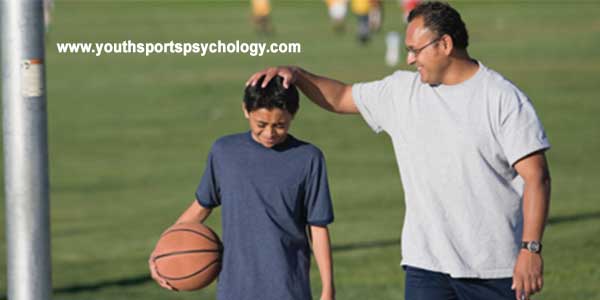How Emotions Affect Young Athletes
Athletes can pick up on others’ feelings–often negative–in youth sports. In fact, feelings can snowball from one player to another, either lifting the team up emotionally or dragging it down.
That’s the message from Jess Woods, Ph.D, a sport and performance consultant, sports parent and youth sports coach. She calls this phenomenon emotional contagion.
“Emotional contagion is the bread and butter when it comes to parents and their relationships with their athlete,” she says.
Young athletes will mimic parents’ facial expression, tone and body language. “The first step is mimicry,” she says.
First athletes become aware of another person’s emotion and how it’s affecting their bodies. Then the contagion begins. Kids will embody the emotion of the person they are interacting with. More often than not, this happens on an unconscious level.
All the kids on a team can “catch” negative emotions expressed by a parent, coach or player, says Woods. But if parents and coaches are more aware of their own emotions, they can help stop the emotional contagion. They can also check in with kids about their feelings.
“We see this play out with athletes,” says Woods. “If individuals are not aware of their own mannerisms and body language, or how to process emotions, they can transmit them to someone else, creating a situation of annoyance, unhappiness or frustration.”
Emotional contagion can also be a positive force.
If a team member is happy and positive, he or she can transmit these feelings to others on the team.
Let’s say one parent gives one athlete negative feedback. That athlete picks up on those emotions and may start criticizing teammates. “It can be a recipe for disaster,” says Woods. “Everyone feels like they are coming from a place of helpfulness.”
It’s parents’ responsibility to be aware of their emotions and how they’re affecting their sports kids.
For example, Woods had to rush home from work to take her daughter to a game, and her daughter wasn’t prepared; she hadn’t put on her shoes and shinguards.
Rather than pushing her daughter to go faster, she changed her perspective and language in an effort to calm herself–and her daughter.
To deal with emotional contagion, coaches can do a quick check in with all athletes, or check in with them one-on-one before practice. The coach then knows the kids’ attitudes and can keep an eye out for emotional contagion. It’s also important to check in after the practice, Woods says.
Listen to the entire interview with Woods:
Related Articles on Kids’ Mental Game:
- Helping Kids Identify Their Feelings Before a Game
- Addressing Outbursts in Youth Sports
- How to Resolve Conflicts in Youth Sports
*Subscribe to The Sports Psychology Podcast on iTunes
*Subscribe to The Sports Psychology Podcast on Spotify
Improve Your Mental Game From Anywhere In The World

We’re certain that, as a parent, you want to help your child develop confidence and discipline in sports and life. And as a sports parent, you’d love for your children to reach their potential in sports. But encouraging your child to strive for greatness without pressuring them can be a challenge.
You can get expert mental coaching with us from anywhere. Meet with us via Zoom, Skype, FaceTime or phone call. With today’s video technology, we are able to connect with athletes and coaches all over the globe.
Call Us Today to Schedule Your Free 15-Minute Session.
Find Out How Your Athlete Can Benefit From One-on-One Mental Coaching!

